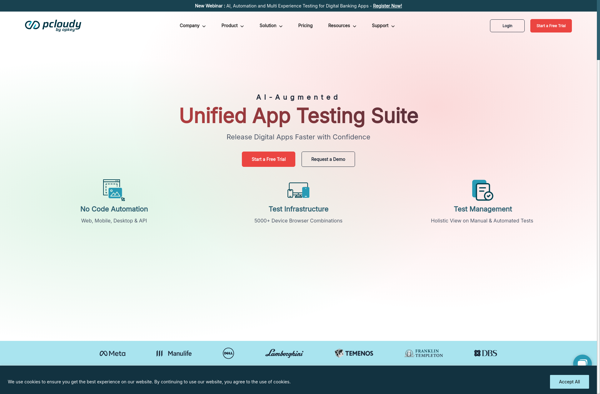Description: Bugdojo is an open source bug tracking and testing tool for software teams. It allows you to track bugs, assign tasks, manage projects, and improve team communication during software development.
Type: Open Source Test Automation Framework
Founded: 2011
Primary Use: Mobile app testing automation
Supported Platforms: iOS, Android, Windows
Description: pCloudy is a cloud-based test automation platform that allows users to test mobile and web apps on thousands of real devices hosted in the cloud. It supports manual and automated testing and provides integration with CI/CD pipelines.
Type: Cloud-based Test Automation Platform
Founded: 2015
Primary Use: Web, mobile, and API testing
Supported Platforms: Web, iOS, Android, API

